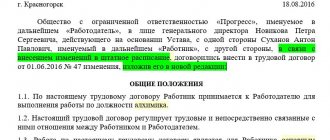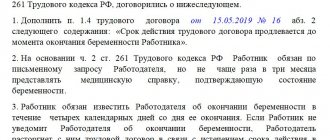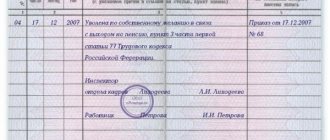What are the mandatory terms of the contract?
Mandatory or essential are those terms of the contract that are subject to agreement, since in the absence of the agreement of the counterparties regarding any of them, the contract may be recognized as not concluded (clause 1 of Article 432 of the Civil Code of the Russian Federation). The legislator included the following conditions:
- Subject of contract.
- Conditions named as such in a law or other legal act. For example, a list of persons living in an apartment (house) that is the subject of a purchase and sale agreement (Article 558 of the Civil Code of the Russian Federation), or the obligation of the rent payer to provide security for his obligation (Article 587 of the Civil Code of the Russian Federation).
- Other conditions - at the request of one of the partners. An example would be a requirement to insure goods when this obligation is not provided for by law.
As an example, let us cite the resolution of the AS SZO dated September 15, 2016 in case No. A66-12135/2015, in which the contract was declared not concluded due to the lack of agreement on the configuration of the tower crane and the presence of disagreements about the price of the goods.
Random essential terms of the contract
The expressions of will of both parties to the transaction are interpreted as the main terms of the contract. In legal theory, they are called accidental, but “accidentality” is not a reason to ignore them. One of the parties has the right to insist on the inclusion of any points that do not contradict the law. And it doesn’t matter if the other side considers these points absolutely insignificant. The contract will be considered concluded only when all issues have been agreed upon.
As an example, consider a purchase and sale transaction of part of a residential property. Essential condition No. 1 is the subject (share in the house/apartment indicating title documents). Conditions No. 2 and No. 3 will satisfy the requirements of the law. This is the price of the property (Article 555 of the Civil Code) and the list of persons who can use the property after the sale of the share (Article 558 of the Civil Code). If only these conditions are met, the transaction is considered valid. But if one of the participants insists on additional conditions, they will have to be agreed upon and included in the contract as essential. For example, the seller may make demands regarding the procedure and timing of payment. To conclude a transaction, the buyer must agree with him or indicate counterclaims on this item and come to a compromise.
By carefully drafting the text of the contract (any contract), the parties to the transaction can protect themselves from almost all risks. Therefore, optimal contracts are individualized documents that take into account all the nuances of a specific situation, spell out the necessary essential conditions, probable conflicts and methods of resolving disputes.
LEGAL SUPPORT OF ORGANIZATIONS
Subject as the main condition of the contract
The subject of the contract is what the partners have rights and obligations over. It must also be clearly defined so that it can be distinguished from similar ones. Let us give the following classification of objects:
You can find more complete information on the topic in ConsultantPlus. Full and free access to the system for 2 days.
- things or property rights under contracts for the transfer of property;
- certain actions for contracting or provision of services;
- mutual actions of partners under preliminary agreements or contracts on joint activities.
Basic terms of the contract. Subject of the agreement
The subject is the reason for the transaction, from which the rights and obligations of the parties arise. It is important to personalize it in order to distinguish it from objects of the same category. For example, the subject in a purchase and sale transaction is a specific product (property), in a contract contract - an action and its result, in a real estate lease agreement - a premises (building, structure).
In some cases, the law establishes special requirements for the presentation of the subject. So in real estate transactions, a mandatory condition of the contract is the property along with information that allows you to accurately determine this property. For example, if the lease agreement does not contain information on the title documents for the object, it is considered inconsistent and, accordingly, void. The parties can easily cooperate under the contract for the entire stipulated period, but in the event of a conflict, it will not help in resolving the dispute - it is just a “piece of paper” that has no legal force.
The contract price is a condition or obligation
The price of the contract is the monetary expression of the obligation of one of the partners to pay for the goods supplied, services provided or work performed and the right of the counterparty to demand such payment. Thus, the price under the contract is not an obligation, it is a contractual condition that determines the quantitative framework of the monetary obligation.
As a general rule, price does not constitute an essential term of the contract . Civil Code of the Russian Federation in paragraph 3 of Art. 424 allows you to determine the amount of payment under the contract based on the price usually charged for similar goods, works, services. However, there are types of obligations, regulating which the Civil Code of the Russian Federation classifies the price as an essential term of the contract:
- retail purchase and sale agreement (Article 494 of the Civil Code of the Russian Federation);
- contract for the sale of real estate (Article 555 of the Civil Code of the Russian Federation);
- construction contract (Article 743 of the Civil Code of the Russian Federation).
Just something complicated
The Supreme Court of Russia tried to give a legal description of the term in Resolution No. 49 of December 25, 2018. The highest authority relied on Articles 154, 158 and 432 of the Civil Code of the Russian Federation. Essential conditions are divided into three types:
- Item . When concluding any agreement, the participants are required to stipulate the essence of the transaction. In some contracts, the subject is a thing, in others – an action, in others – property rights.
- Mandatory conditions established by law . The second part of the code contains descriptions of more than two dozen transactions. Essential terms vary. They are prescribed in the relevant chapters.
- Conditions stated by one of the parties . At the negotiation stage, the participant can determine a list of issues, the approval of which is mandatory for concluding a deal. This follows from the meaning of Part 2, Clause 1, Art. 432 of the Civil Code of the Russian Federation.
If the parties do not clearly define the essential terms, the contract is considered not concluded. Counterparties do not have the right to demand its execution and insist on the collection of penalties for violations. Such documents do not give rise to legal consequences.
Non-essential terms of the contract
Along with the essential and non-essential terms of the contract, they play a certain role . These include other terms of the contract, the failure of which does not entail the non-conclusion of the latter. Often these conditions are regulated by law dispositively, i.e. the normative rule will be applied if the partners do not agree on a different rule. These include provisions:
- the date and place of conclusion of the contract;
- the form in which the contract is concluded;
- jurisdiction of disputes arising from the contract.
Specifying the price in the contract
Although price is usually not an essential condition, in some cases it may become so. Moreover, the number of such cases is greater than it might seem at first glance.
Even if this condition is absent from the contract, the price is determined as the price for similar goods under comparative circumstances (Article 424 of the Civil Code of the Russian Federation). The application of this norm to supply contracts has been fully confirmed by the courts for a long time (for example, Resolution of the Presidium of the Supreme Arbitration Court of the Russian Federation of April 17, 2002 No. 10575/01). Moreover, the parties must prove the existence of comparable circumstances by declaring the price of a similar product for similar transactions. Usually in such situations the price is determined on the basis of expert opinions and testimony of specialists (for example, chambers of commerce and industry).
But Article 432 of the Civil Code of the Russian Federation classifies as essential conditions all those conditions the importance of which is declared by one of the parties. It is not so easy to imagine businessmen who, during negotiations on concluding a contract, will not discuss the price of a product - its most important characteristic in a market economy. You can try to imagine an exception to these cases: the delivery of unique items or the parties lack of time to discuss the terms of the contract. However, even in such cases, it is difficult to think that the price was not discussed during the negotiations and neither party announced the price for which it was ready to buy or sell the goods, or did not mention the need to agree on a price (for example, during correspondence).
The last sentence of paragraph 54 of the PP of the Armed Forces of the Russian Federation and the Supreme Arbitration Court of the Russian Federation dated July 1, 1996 No. 6/8 refers precisely to those very cases in which the parties declared different prices - that is, both counterparties during the negotiations declared the materiality of the price condition. It is unlikely that this explanation should be understood in the sense that if the parties did not discuss the price and did not fix it in the contract, then the contract will not be concluded - a different reading would contradict the meaning of Art. 424 and 485 of the Civil Code of the Russian Federation.
Although in practice, an unscrupulous party, even in the absence of a price discussion, may indicate the presence of disagreements when signing an agreement, the outcome of the case will still depend on whether this is proven or not. But in order to definitely avoid this risk, it is worth setting the price of the product in the agreement.
Change of essential terms of the agreement
Art. 450 of the Civil Code of the Russian Federation provides that, as a general rule, changes to the current contract must be made when the partners reach mutual agreement. In multilateral transactions, it may be possible to change the terms if a majority of the counterparties reach agreement.
At the will of one of the partners, the essential terms of the contract can be changed by decision of the judicial authorities:
- in case of a significant violation of his duties by one of the partners;
- in cases expressly provided for by contract or law;
- when there is a significant change in circumstances.
List of essential terms of the supply agreement
The Civil Code of the Russian Federation establishes that an essential condition of any contract is a condition on the subject. This applies equally to the supply agreement. The subject of such an agreement is the transfer of ownership of goods to the buyer for a fee. That is, it is the goods that are the subject of this agreement - in any supply agreement they must be described with a certain degree of accuracy, indicating all the key characteristics.
The condition of the delivery time is often considered an essential condition of the supply contract - due to the fact that Article 508 of the Civil Code of the Russian Federation indicates that the contract determines the delivery time. However, the courts have long been based on the fact that the provision on the term is not significant, but instead applies the provisions of clause 2 of Article 314 of the Civil Code of the Russian Federation (clause 7 of the PP of the Supreme Arbitration Court of the Russian Federation of October 22, 1997 N 18). But in judicial practice there are also opposite examples.
The price condition, as a general rule, is not essential. But this statement may be somewhat misleading, since, firstly, the parties during negotiations usually declare the importance of the price (which makes the condition significant), and secondly, the PP of the RF Armed Forces and the Supreme Arbitration Court of the Russian Federation dated 07/01/1996 No. 6/8 indicates that the contract is not concluded if the parties have a disagreement on the price.
Other conditions are not significant, except in cases where one of the counterparties declares the importance of agreement on any condition.
What entails a violation of the essential terms of the contract
Art. 393 of the Civil Code of the Russian Federation provides a general rule for determining liability in the event of non-fulfillment or improper fulfillment of obligations under a contract in the form of compensation for losses caused to the injured party. For such a consequence to occur, the following conditions must be present:
- breach of contract;
- fault of the counterparty;
- causing losses;
- the presence of a cause-and-effect relationship between the breach of contract and losses.
IMPORTANT! The absence of guilt is proven by the counterparty who committed a violation of the contract.
When concluding a contract, it is necessary to clearly define the type to which it belongs in order to understand what conditions must be agreed upon by the parties. After all, the omission of an essential condition of the contract leads to the recognition of the latter as not concluded.
What are the essential conditions?
General rules for concluding contracts are contained in civil legislation. The agreement is considered valid if at least basic issues are agreed upon.
| Transaction type | Essential conditions | Legal basis |
| Purchase and sale | The document must contain information that allows you to accurately identify the product, determine its quality and quantity. If the subject of the transaction is real estate, the parties need to indicate the price. | Art. 454, 455, 465, 555 of the Civil Code of the Russian Federation. |
| Mena | Participants need to clearly define the values to be exchanged. | Art. 567 Civil Code of the Russian Federation |
| Donation | The essential terms of the transaction are the subject matter and the gratuitous clause. | Art. 572 Civil Code of the Russian Federation |
| Rent | The parties agree to transfer property in exchange for regular payments. In this case, the recipient of the valuables must ensure the interests of the partner (rental creditor). If the subject of the transaction is real estate, the collateral becomes an essential condition. In other cases, standard measures (penalty, retention of property, deposit, guarantee) or insurance are sufficient. The nature of the payments must also be discussed. They may be limited to the life of the lender or be perpetual. | Art. 329, 587, 583 Civil Code of the Russian Federation |
| Rent | First of all, participants will need to describe the object. Non-consumable items can be rented. In addition, the parties must be able to identify them. Another essential condition is remuneration. Rental cannot be free. Establishing the amount of remuneration becomes mandatory if the subject of the transaction is real estate. | Art. 606 – 607, 654, Civil Code of the Russian Federation |
| Renting housing | The agreement must describe the premises being transferred, as well as the amount of payment for it. | Art. 671, 682 Civil Code of the Russian Federation |
| Loan | A contract for free use must contain information about the subject and a free clause. In the absence of a gratuitous clause, the transaction may be reclassified as a lease. Only individually defined things become the object of the loan. | Art. 689 of the Civil Code of the Russian Federation, resolution of the FAS SKO No. F08-2658/04 |
| Contract | Participants describe the result in detail and set a deadline for the work. | Art. 702, 708 Civil Code of the Russian Federation |
| Paid services | The contract determines exactly what actions the contractor must take. If it is impossible to list all operations, it is possible to indicate the type of activity (for example, security of an object). | Art. 779 of the Civil Code of the Russian Federation, Information letter of the Supreme Arbitration Court of the Russian Federation No. 48 |
| Shipping | Essential terms depend on the type of contract. Thus, when transporting goods, the parties are required to agree on the type, quantity and condition of the valuables being transported, the type of transport, the destination, as well as the final recipient. The agreement will also need to specify the amount of the fee. When transporting passengers, it will be enough to specify the price, points of departure and arrival. If you have luggage, you will have to resolve the issue of its transportation. | Art. 785, 786 Civil Code of the Russian Federation |
| Leasing | The text of the document must record all the characteristics that allow this item to be identified. | Art. 15 Federal Law No. 164, art. 614 Civil Code of the Russian Federation |
Civil legislation also establishes requirements for the content of specific transactions. If necessary, you can find in the code the rules for concluding agreements on a commercial concession, loan, and trust management.
In this case, you should understand the difference between essential and additional conditions. Provisions on the obligations of the parties, limits of liability, jurisdiction and other points are important for the execution of the contract. However, their absence will not entail recognition of the transaction as not concluded. In such a situation, the parties will rely on market rates, judicial practice or business customs.
Random delivery conditions
They mean those items that are included at the discretion of the seller and/or buyer. If mutual understanding is not reached on one, several or all of them, this does not entail recognition of the contract as non-compliant.
The following points can be cited as an example:
- the amount of fines due to failure to meet the delivery schedule or payment plan;
- the container in which the objects will be sent;
- specifics of resolving disputes due to damage, inadequate quality and other violations.
You can compose a preliminary document text (to subsequently show it to the other party) using templates already available on the Internet. Now that you know the essential (noun) and non-essential terms of the supply agreement and the difference between them, it will be easier to do this. Although we still advise you to use the help of lawyers with the appropriate specialization - this way you will insure yourself against many mistakes.
Number of impressions: 149









